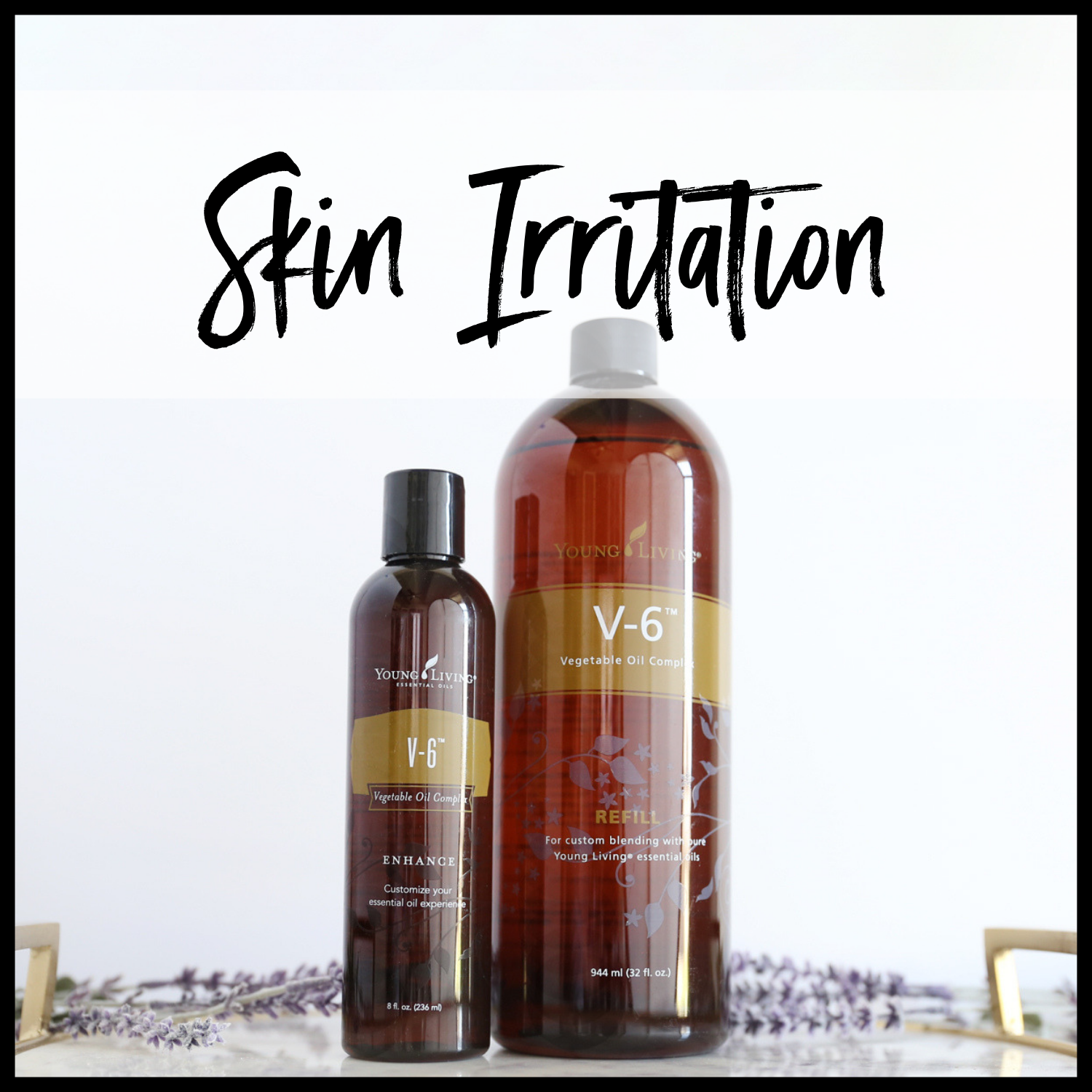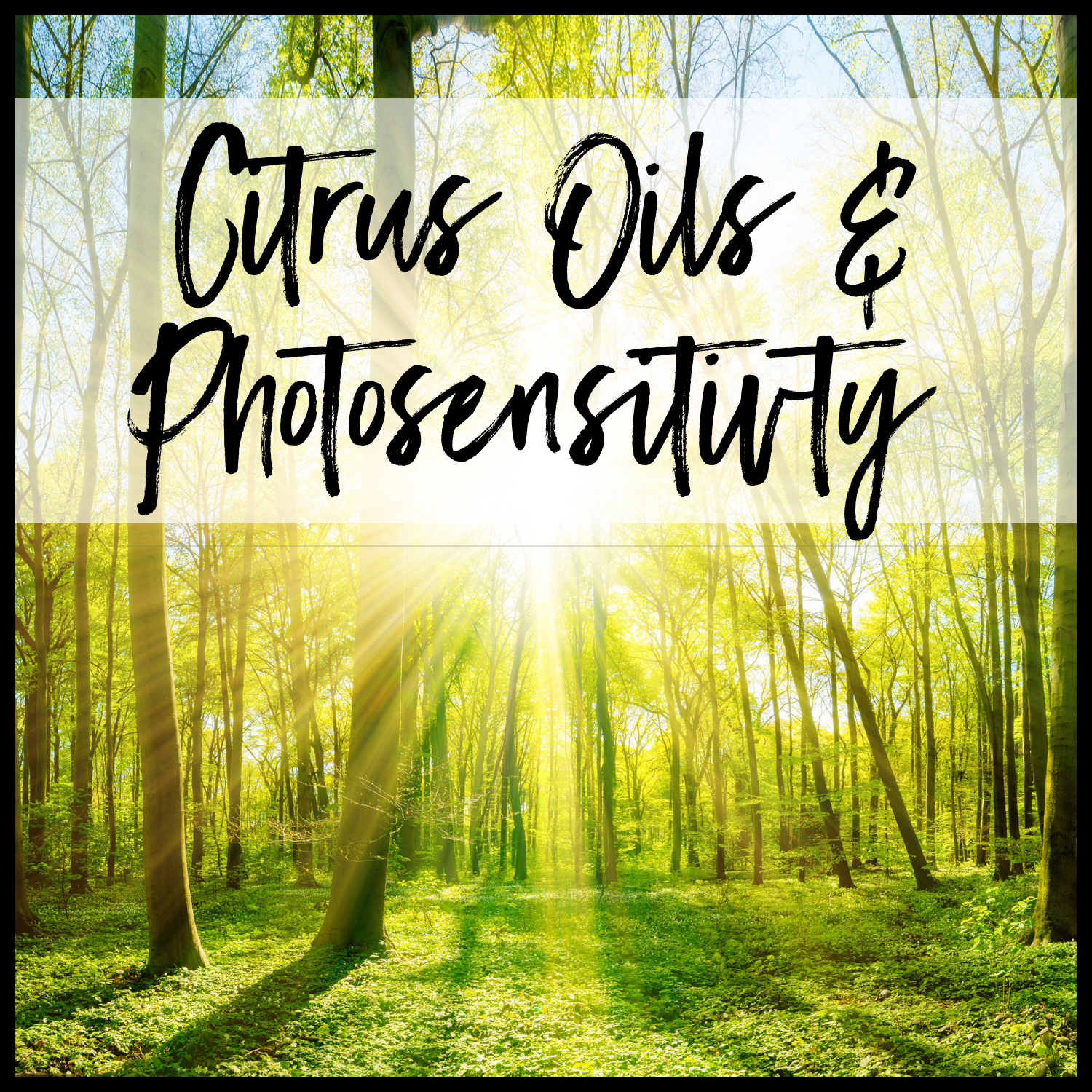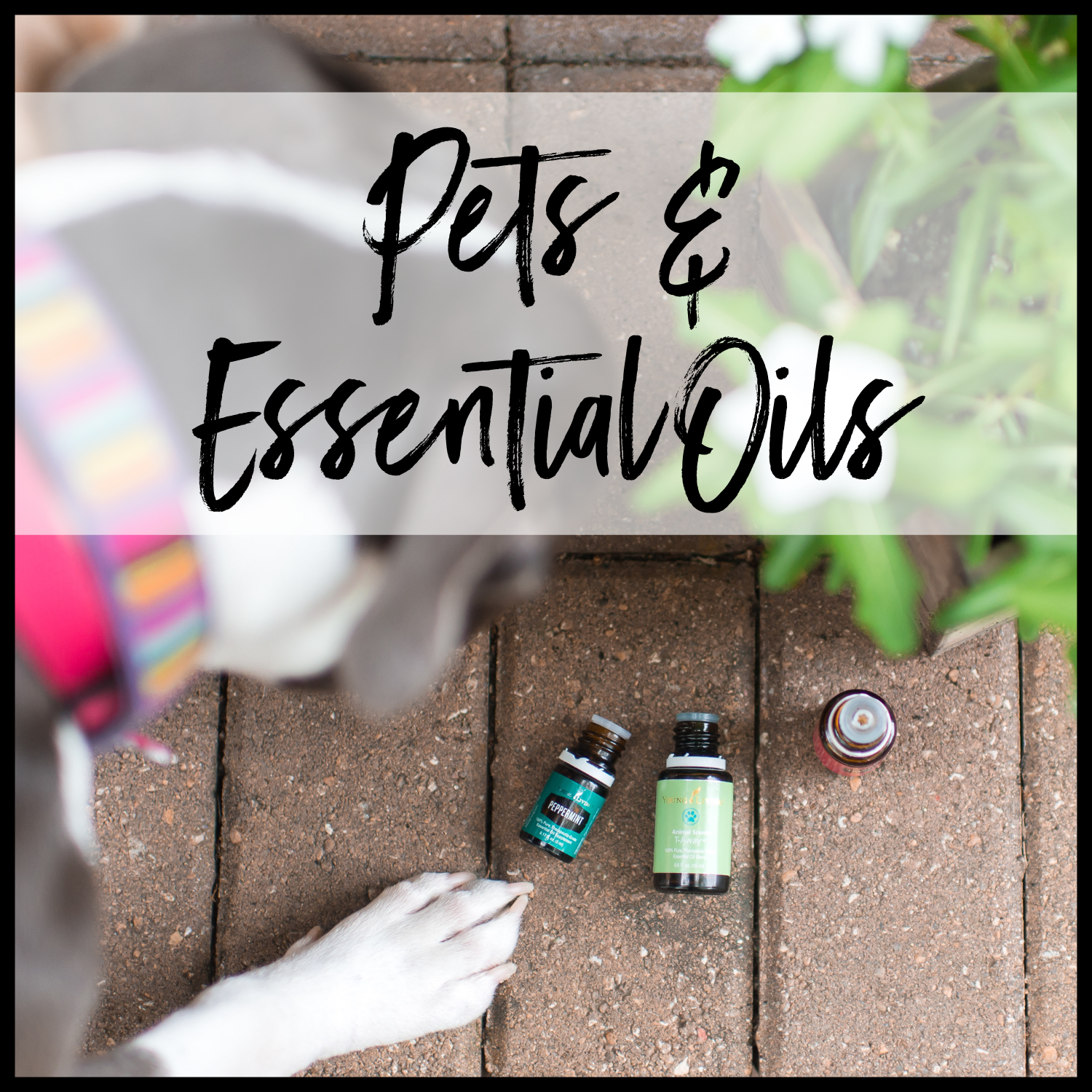Essential Oil Safety Tips
Essential oils are powerful and should be used with care! It’s really important to do your research when choosing what essential oils to use and how to use them. The idea that “if a little is good, a lot is better” is not true with essential oils. We recommend starting low and going slow. In most cases, just 1-3 drops at a time is enough. Because oil quality can vary across brands, please note that these recommendations are only for Young Living essential oils.
Never Use Water If You experience Irritation
Although most essential oils are safe for general use, the potency of some oils can cause irritation. These oils are usually referred to as "hot oils" because when applied directly (neat) they can cause a hot or burning sensation. Some of these oils include Cinnamon, Clove, Lemongrass, Peppermint, Oregano, and Thieves. To alleviate this, dilute the essential oil by applying a carrier oil such as Young Living’s V-6 Vegetable Oil Complex, coconut oil, almond oil, jojoba oil, grape seed oil, hempseed oil, or olive oil. Carrier oils ensure that essential oils applied topically are comfortable and safe. Dilution with a carrier oil does not lessen the effect of the essential oil; it acts as a buffer to the essential oil and allows it to absorb into the skin and bloodstream more slowly, which is important for your body if you are new to using oils. Carrier oils can help prevent waste due to excessive application and evaporation. They can be mixed with essential oils in a roller bottle, in the palm of your hand, or in a glass bowl. You can always apply additional carrier oil on top of essential oils if the effect of the essential oil on your skin is too strong.
NEVER USE WATER IF YOU EXPERIENCE IRRITATION. Oils are not water soluble; using water will only drive the oil into the skin faster and deeper. Instead, be sure to use a carrier oil. If oils get into your eyes, flush them with a safe carrier oil. If eye discomfort does not subside within 5 minutes, please seek medical attention.
Do NOT apply essential oils to sensitive areas like the eyes, inside of ears, or mucous membranes. If you are using oils for ear issues, do NOT drop oil inside the ear. Instead apply around the outside of the ear and down the lymph nodes. Some diluted oils can be applied to a cotton ball and placed gently inside the ear opening. If you choose to use the oil in any sensitive area, dilute 1 drop of the essential oil with 5–10 drops of V-6 or another carrier oil.
skin irritation
Excessive use of essential oils, particularly undiluted essential oils, may increase your risk of skin irritation or other adverse reactions. It’s important to start with low amount of oil and go slowly when you are first starting out. A rash may also be a sign of petrochemicals leaving the body. Drink adequate water to encourage the release and removal of toxins in your body. Oftentimes we don’t realize how many toxins are in the personal care products we are using. Essential oils help cleanse the body and purge toxins.
Toxins present in petrochemical-based soaps and skin care products, detergents, and perfumes may trigger some of the detoxification reactions. Consider discontinuing these agents if a reaction occurs. Before using the essential oil again, perform a patch test and dilute with a carrier oil as needed.
You may also consider a cleansing program to encourage the release of these built up toxins in your system in a safe and comfortable way. Young Living has many supplements that can assist you with this. Additionally, switching your personal care and cleaning products to clean, safe, toxin-free products is ideal. We strongly encourage you to make this switch as soon as possible when you begin using essential oils. Essential oils can help support the body’s natural detoxification processes and if chemicals are constantly being reintroduced onto your skin and into your body, essential oils will continue to enhance your body’s attempt to get rid of them—sometimes this can create a skin reaction that many people mistake for a “negative reaction” to the oils.
essential oils storage
Essential oils should be kept in a cool, dark location (out of direct sunlight) with lids tightly closed and out of reach of children. Prolonged exposure to sunlight will oxidize your oils causing the healing properties to deteriorate. Essential oils are flammable, therefore never leave them near sources of ignition such as stoves, fireplaces, open flames, etc. (To give you some perspective on this, alcohol such as vodka and other spirits are also flammable.)
When making your own blends, be sure to use dark colored GLASS containers. If you choose roller tops, stainless-steel or glass rollerballs are the best choice. Only when using small amounts of essential oil diluted in a carrier, lotion, or soap, for example, is it safe to use a high-grade plastic container (look for the number 1 or 2 in a triangle on the bottom of the container).
essential oils & plastic
Essential oils are highly potent. It is imperative that you do NOT drink beverages with added essential oils out of plastic containers. You need to use glass, ceramic, or stainless-steel containers. Plastic contains many toxic chemicals. Essential oils break down these toxic chemicals. When you add oils to your water (or other beverage) that has been poured into a plastic container, the oils will begin to break down these chemicals in the plastic causing them to leech into the water you will drink. This will not occur in a glass, ceramic, or stainless-steel container. Don't let this alarm you as essential oils break down toxins, not natural, healthy cells. If you put a drop of Lemon on toxic plastic, it will break down the plastic. If you put a drop of Lemon on say, an apple, it will not harm the apple. Though it does give it a delightful flavor.
Here is a perfect illustration of the breakdown of plastic by an essential oil:
Ningxia Red was poured in a plastic shot glass. Two drops of Lime Vitality oil were dropped in the Ningxia Red. Ashlee was new to essential oils and did not yet know that essential oils break down the plastic and should not be left to sit in a plastic container. Instead of drinking it immediately, the shot was left to sit for 30 minutes. When she picked it back up to drink it, the top separated from the bottom in a perfect line where the lime oil had been resting on the surface of the Ningxia Red. The Ningxia Red spilled everywhere (and all over her beautiful outfit), and we cried at the loss of Ningxia, lol. Fortunately, we had some Thieves Household Cleaner on hand to remove the Ningxia Red from her clothing.
citrus oils & photosensitivity
While essential oils can protect plants from too much sunlight, in some cases the plants want more sunlight. In this case, the oils act as solar amplifiers. The principal photosensitive oils are the citrus oils, which all come from the rind of the fruit. Nature wants to amplify the UV light in the skin of a fruit in order to accelerate the ripening of the fruit and maximize its sugar content. So, if you apply citrus oils to your skin, they can amplify the UV light when you are in direct sunlight or in a tanning booth. They can cause you to burn and even produce permanent pigmentation patches. So, to be safe, stay out of direct sunlight and UV sources for at least 12 hours after applying photosensitive oils to the exposed parts of your body. Young Living formulates its beauty and cosmetic products to remove sun-sensitizing agents to reduce the risk of sun sensitivity.
essential oils in your bathwater
This is a favorite way for many people to use their essential oils. As you may know, oil and water don't mix. If you simply add drops of oil to your bathwater, the essential oil will just float on the surface of the water. This may cause skin irritation to the part of your body at the waterline due to a high concentration of oil and water driving the oil into the skin quickly. Instead, ensure the oils disperse throughout all of your bathwater. When adding essential oils to a bath, first add the drop of essential oil to either Epsom salt, baking powder, or Young Living Bath & Shower Gel Base. Then then add the mixture to the running water as you are filling the bathtub.
prescription medication
If you have a disease or medical condition, or if you are using a prescription medication, it is recommended that you consult with a health professional who has experience with essential oils prior to use. Seek the advice of the prescribing physician and a pharmacist about potential interactions between your medication and any essential oils.
babies & children
When using essential oils on babies and children, it is always best to overdilute. For babies, start with a ratio of 1-2 drops of essential oil to 1 tablespoon of carrier oil. For children, start with 1 drop of essential oil with 10 drops of a carrier oil. If the oils are used in a bath, always use Epsom salts or a bath gel base as a dispersing agent for the oils. Oils that are dangerous to ingest have childproof caps, but always keep essential oils out of children’s reach. If an oil is ever ingested by a baby or child, give them an oil-soluble liquid such as milk and then seek medical attention.
pregnancy & breastfeeding
As with any medical condition, if you are pregnant or breastfeeding it is strongly recommended that prior to use of essential oils, you seek the advice and recommendation of a health care professional who is experienced in essential oil usage.
pets & essential oils
Dilute oils before applying to pets, especially cats. Avoid their eyes and nose as they are incredibly sensitive. Be sure your pet can leave a smaller room while diffusing. Dogs and cats absorb oils through their fur, so even diffusing may result in topical administration. When it comes to oils and pets, less is more. Just like in humans, consult an animal healthcare provider with knowledge of essential oils before starting any routine.
You can enter a search term below to find related articles:











